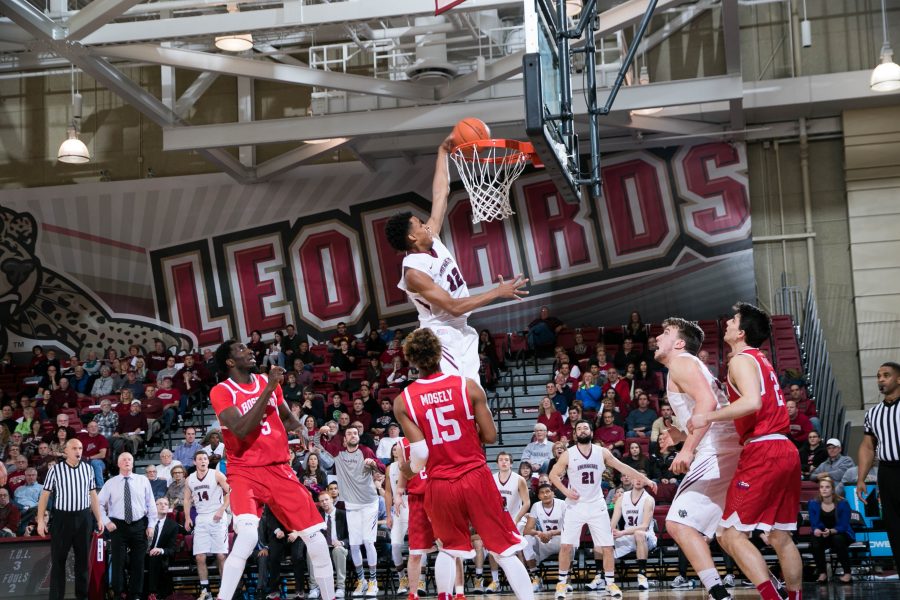There have been several motifs in my “Sidelines” articles in my time writing for The Lafayette, but I particularly enjoy writing about things that stand out about the way we regard sports in America. I’ve written articles about the notion of a tie, and why they shouldn’t exist in the NFL. I’ve also written about how the 68-team March Madness tournament is the perfect storm for the action-hungry, do-or-die game junkie American sports fan.
Just a week ago, I wrote a piece on Leicester City FC’s improbable rise to the top of the English Premier League, and I mentioned how the way in which Premier League champions are crowned is considered unorthodox on this side of the Atlantic.
As a refresher, in order to win the Premier League, a team simply needs to be in first place at the end of the season. There is no tournament bracket of any kind, and the same is true for all of the other major soccer leagues across Europe.
Of course the lack of a tournament bracket or championship game in European leagues is much different from how champions are crowned in American sports leagues. But there is something about the way Leicester sealed their league title this season that seems so, well, foreign.
Leicester City locked up the league title on Monday. But if you look back at Leicester’s schedule this past week, they didn’t even have a game on Monday.
The runners up, Tottenham, had to win their remaining two games to have a chance at finishing in first. Instead, Tottenham tied Chelsea 2-2 on Monday afternoon, sealing the first place finish for Leicester.
As I heard someone say on Monday, “I love soccer and all, but there is nothing in sports that’s more European-styled than a team winning the title on their Monday afternoon off by having another team tie.”
If American leagues used the European model, the Red Sox would have never won the infamous 2004 World Series, the Panthers would have celebrated their first championship this year because the Super Bowl wouldn’t even exist, and the Golden State Warriors would already be this season’s champs.
Given Stephen Curry’s recent injury, people in the Bay Area might opt for the European model right now. But I doubt we’d see such a preference anywhere else in the US.
Even America’s top professional soccer league, the MLS, has a playoff tournament. This just goes to show that it’s the preferences of the fan base within a particular culture, not the nature sport itself, that determines how the season should come to a close.
Simply put, the European model does not generally appeal to our country’s sports fans.
As I mentioned earlier, my piece about March Madness called the tournament a perfect format for the typical American sports fan. As it were, the championship was decided in the last second as Villanova won the national title on a game winning buzzer-beater as we watched streamers rain down on the court in Houston.
To make matters even stranger, Leicester has two more games this season that mean absolutely nothing. In each of their final two games, they can lose by 100, have their midfielders play while wearing blindfolds, and put me in at goalie and still be crowned champions.
To be fair, there are other tournaments that European soccer teams participate in throughout the year that do, at times, have championship games. But these tournaments are often regarded as inferior to being crowned “league champs,” as Leicester has done this year.
It’s interesting, and perhaps surprising to other American sports fans, that many soccer fans are okay with ties and the lack of a championship game. I’m not here to say that either system is “better” than the other. I simply want to shed light on the differences surrounding sports in different cultures.
Many American fans assume that the Premier League has a Super Bowl-esque end to the season, when this is far from the truth.
Whichever way of crowning the champs you prefer, there is no doubt that Leicester’s home match on Saturday will be attended by 32,000 fans that are just as satisfied as Villanova fans were a month ago.
Having your team finish on top, however that may be done and whatever that may mean, is cloud nine for any die-hard sports fan. And that’s why no matter where you go, and no matter what sport it is, you will find people who absolutely live for supporting their teams.



































































































